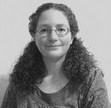'It happened to me' evidence
The California measles outbreak struck as my 3 month old daughter was starting daycare, which in accordance with the school systems does not require standard vaccinations. While I understand that there are some individuals that cannot be vaccinated due to allergies, suppressed immune systems and other medical reasons, I am decidedly pro-vaccination.
One woman posted at the Bangor Daily News Facebook page that she will never give her son or any of her children another vaccination after the son developed symptoms of autism following a fever post-immunization.
I wanted to respond to this woman whose choice could very well be putting my infant too young to be vaccinated against measles at risk. But what could I tell her that she doesn't already know? Currently, the Maine legislature is trying to pass a bill that would require consultation with a doctor prior to making a philosophical decision not to vaccinate.
The right to chose is firmly engrained in people. But in order to make informed decisions, people need to be informed.
Why are so many people - 5% of children in Maine are not fully vaccinated - deciding that vaccines are either not effective or even harmful?
I wanted to tell this woman that there is no proven link between autism and vaccination, that the fever her child had was a normal response to the immune system being triggered, that the verbal regression she observed was common among children who develop autism, that vaccinations is the best means of preventing the spread of these highly contagious and dangerous diseases.
But what good do these facts do for a mother who saw with her own eyes the change in her son and linked it to the vaccination.
What makes her observation different from the observation done by a scientist? Nothing. The difference is in that she used one observation on one child (in the context of other such single child observations) to reach her conclusion.
Just because two things happened around the same time doesn't mean one led to the other. A scientist observing children developing autism around the age of vaccination would then do an experiment, or in this case a study, to prove the hypothesis, or idea, that vaccination causes autism. How many vaccinated children develop autism? Does autism occurs in children who are not vaccinated? These are the questions a scientist would want answered before making a conclusion.
Based on these kinds of studies, there is no current evidence that vaccinations causes autism. However, in science no idea is set in stone. More observations are made. More experiments are conducted with better parameters. Ideas are fluid.
This woman believes - like many others - that her son's autism was caused by a series of vaccination. Beliefs are a lot harder to change than ideas.



